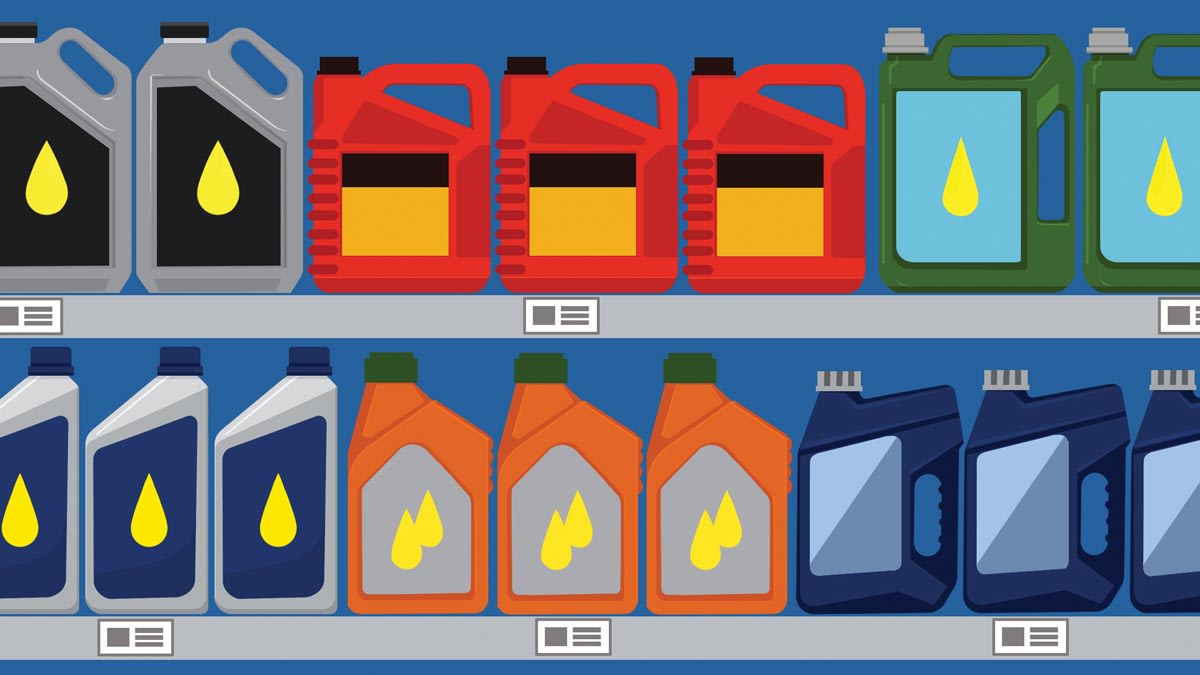If you’re the diligent type who checks your engine oil level at least once a month (as CR recommends), there’s a chance that at some point the dipstick will read “low” and you’re going to need to top up the oil. But the array of oils you’ll find lining the shelves today—regular conventional and more pricey synthetic, synthetic blend, and “extended life” and “high mileage” conventional oils—may leave you wondering which is the best for your car.
“In a pinch, most any motor oil will do an adequate job and keep your engine from exploding,” says John Ibbotson, chief mechanic at Consumer Reports’ Auto Test Center. “But depending on the model you own and the conditions you drive in, some oils will perform and protect your engine much better than others. In the long run, choosing the right oil—and changing it at the correct intervals—will save you money and keep the engine from wearing out prematurely.”
Below, Ibbotson provides a primer on modern motor oil and offers advice on how to choose the optimal one for your car.
Why Your Car Needs Oil
Motor oil is an engine’s lifeblood. It creates a lubricating film between moving metal parts to keep them cool and reduce friction. Without it, excessive heat created by the parts rubbing together would severely damage the engine, in the worst case paralyzing the vehicle as spinning chunks of the engine break through the oil pan. “Oil breaks down and loses its protective properties over time, which is why you need to change it, typically every 5,000 to 10,000 miles,” Ibbotson says. “Engines wear as the miles pile on, and some may burn or leak oil after a while, so it’s vital to check the level regularly and top it up between oil changes.” (Learn how to check your car’s engine oil.)
